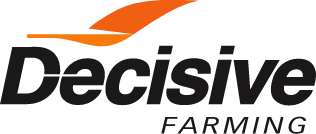Blockchain technology has moved from concept to reality, becoming something of a buzzword in the process. The real question is: can blockchain move beyond the hype and deliver real value for farmers and producers in the near term?
Ruairi Hanafin, co-founder and chief architect at Grain Discovery, believes the adoption of blockchain technology is a win-win for both primary agricultural producers and the consumers who are seeking greater transparency and traceability in their food system. Grain Discovery – a groundbreaking online marketplace aimed at providing solutions to simplify and enhance the connection between sellers and buyers across the supply chain – transacted the first blockchain sale of grain by a farmer to an elevator.
“What the individual farmer will be interested in hearing is that there are ways they can potentially monetize the data that they have and there are ways they can derive a better price for their crops,” explains Hanafin, who adds that creating greater opacity throughout the entire supply chain will ultimately benefit both farmer and consumer. “People these days care very much where their food came from and how it’s made. The problem is, from the perspective of the farmer, they are often not adequately compensated for better farming practices and better sustainability practices.”
Remi Schmaltz, co-founder and CEO of Decisive Farming, says blockchain technology is really a “powerful type of secure database or digital ledger” that enables farmers to track and manage the significant number of inputs and applications required during a growing season. His company’s integrated farm management platform, My Farm Manager™, and Croptivity™ app are empowering farmers to use their own data to differentiate the value of their crop in a global commodity market, better manage their inventories and resources, optimize agronomics for more sustainable production, and continue to exceed regulatory requirements.
“In agriculture, blockchain promises a single source of truth about the state of your farm, inventory, and contracts,” says Schmaltz. “With the advancement of encryption technologies, both the farmer and the end consumer can have faith that the data collected along the way is secure and pristine.”
Agricultural insights company, DTN, provides solutions such as Ag Weather Stations, MyDTN, Ag Weather Tools, and Spray Outlook. By offering theses solutions, DTN supports farmers and provides “actionable insights that empower them to apply products when they’ll be of maximum effect,” explains Mary Friedrichsen Tangen, vice-president, Agrilculture Strategic Initiatives with DTN.
“In today’s tight commodity markets, every decision in the field has to be based on the most accurate information available. Weather is one of the variables that directly influences yield and contract price,” explains Friedrichsen Tangen. “We can now see the potential for blockchain to account for key weather incidents, which translates into tangible benenfits such as faster insurance payments for the farmer in the event of drought or flooding.”
For Bearhill Brewing Company in Calgary, Alberta – which released a blockchain beer in February 2019 called Bock Chain – farmer-generated data is also a powerful new way to advocate on behalf of farmers and help bridge the gap between consumers and producers.
“We strive to tell farmers’ stories and blockchain technology is a means to an end,” explains Phil Brian, director of brewing at Bearhill.
For the development of Bock Chain, the number of data points collected from field to can “was around 30, and that was for one section of land on the farm for just one ingredient in the beer,” says Brian. “We see a future where we can trace all the elements in the beer from multiple farms through multiple supply chains and multiple distribution networks – true transparency for everything from farm to glass.”
Schmaltz says while blockchain continues to generate headlines and buzz, it is silently working to prove its value to food manufacturers and farmers alike. “When blockchain comes, you might not even notice it. Apps and software that implement blockchain will look and feel the same as many of the applications growers are using right now. The difference is that blockchain opens a wealth of potential new options for collecting data and automating farm management.”
To hear more about the application of blockchain in agriculture, be sure to attend the American Society of Farm Managers and Rural Apptaisers (ASFMRA) Annual Confrenece November 17-22 in Louisville, Kentucky, where Schmaltz, Hanafin, Friedrichsen Tangen and others will be speaking. Visit www.asfmra.org for details.


